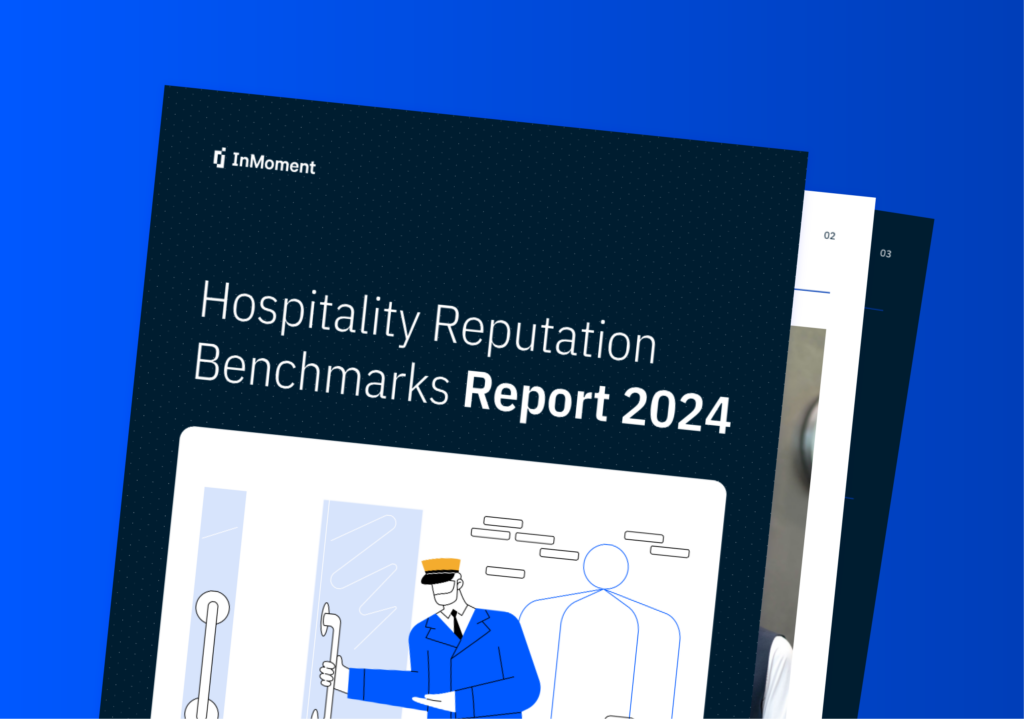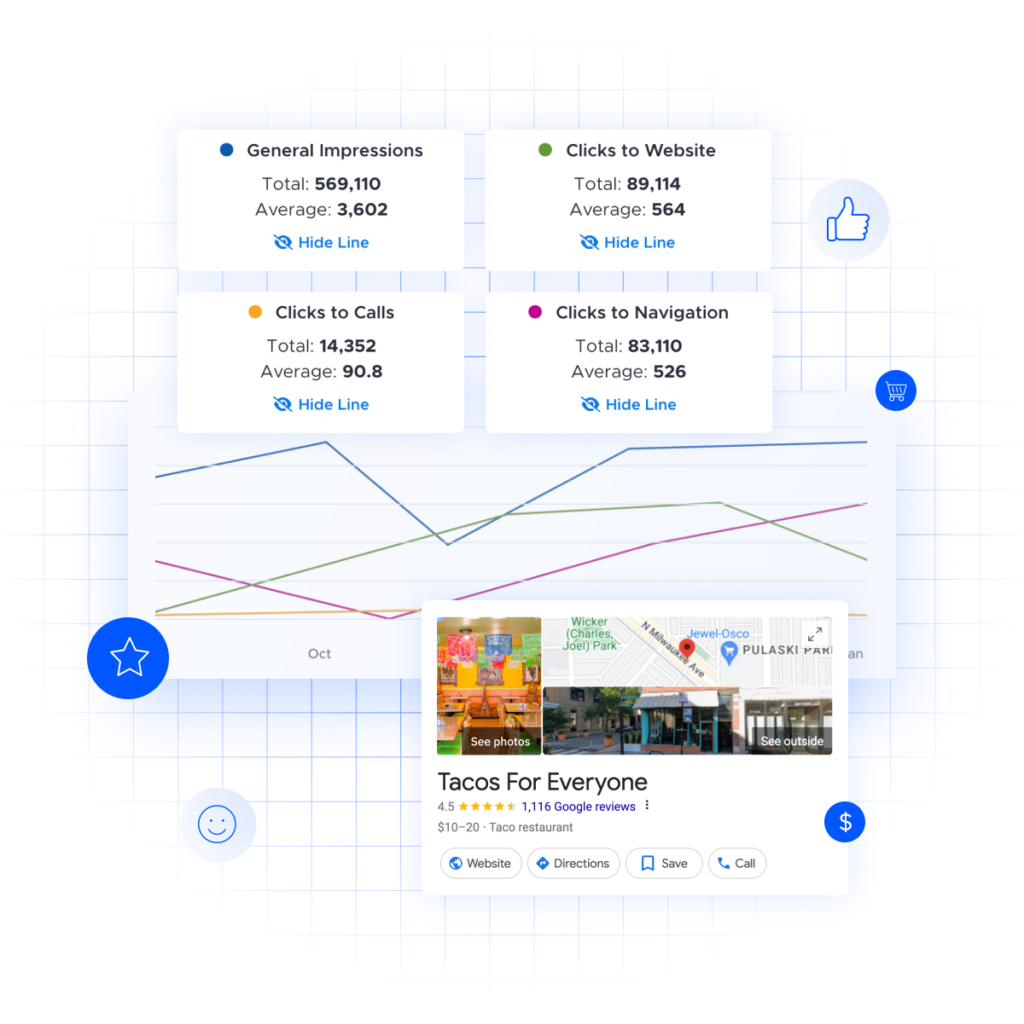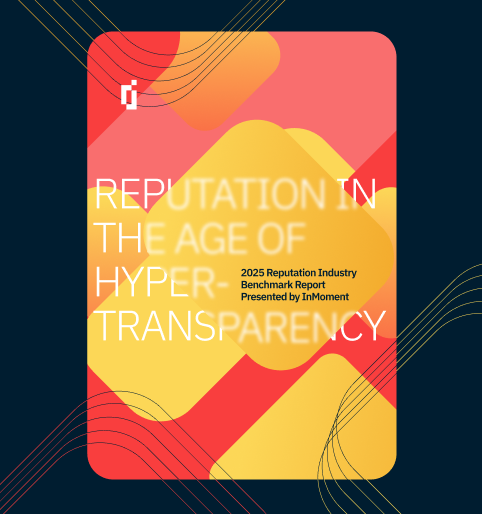Hotel Reputation Management: Boost Guest Satisfaction and Online Ratings
Hotel reputation management can offer you a competitive advantage by increasing bookings, repeat customers, and public perception of your brand.
Hotel reputation management has never been more important. With the increased usage of online review platforms and social media, guests hold unprecedented power to shape public perception. A bad review or post gone viral could deter potential guests from ever getting to your website. With these stakes in mind, your hotel reputation management strategy must be an integral part of your business strategy to keep your hotel competitive with the top brands.
Why Hotel Reputation Management Matters
Your hotel’s reputation is its most valuable asset. Positive reviews and glowing recommendations can drive bookings, while negative reviews can deter potential guests. In fact, research shows that a one-star increase in a hotel’s online rating can lead to a 9% increase in revenue.
Moreover, your reputation directly impacts brand loyalty and repeat business in an industry where word-of-mouth recommendations carry significant weight. A positive reputation not only attracts new guests but also fosters trust and loyalty among existing clientele.
Hotel Reputation Management Strategies for Success
There are various ways to improve the hospitality experience for your guests, but every great hotel reputation is built upon similar strategies. These strategies represent a commitment to the guest experience and lay the groundwork for continuous reputation success.
Proactive Engagement
Proactively engage with guests throughout their journey, starting from the moment they express interest in your hotel. Respond promptly to inquiries and provide personalized recommendations based on their preferences. During their stay, encourage guests to share their experiences on social media and review platforms. Engage with guests post-stay to thank them for their feedback and encourage them to return.
Transparency and Authenticity
Transparency builds trust and credibility with guests. Be upfront about any limitations or challenges your hotel may face, whether it’s related to amenities, renovations, or external factors like weather conditions. Authenticity in your interactions and communications fosters genuine connections with guests and helps mitigate the impact of negative feedback.
Cultivate a Positive Online Presence
Actively manage your hotel’s online reputation by monitoring reviews and mentions across multiple platforms. Respond promptly to all reviews, both positive and negative, in a professional and courteous manner. Knowing how to respond to Google reviews is a cornerstone of an effective reputation management strategy. Showcase positive feedback on your website and social media channels to highlight your strengths and reassure potential guests. Encourage satisfied guests to share their experiences online and provide guidance on where and how to leave reviews.
How to Improve Your Hotel Reputation
While reputation management software can be useful and should be considered for hotels looking to take their online reputation seriously, it is not required to begin improving your reputation. There are things you can start doing today to get a head start on ensuring your reputation makes your business an option for guests.
Respond Promptly and Professionally
Timely responses to guest feedback demonstrate your commitment to customer satisfaction. Monitor review platforms and social media channels regularly to address guest concerns in a timely manner. Craft personalized responses that acknowledge the guest’s feedback, express empathy, and outline steps taken to address their concerns.
Leverage Guest Feedback
Act on guest feedback to drive continuous improvement in your operations. Identify recurring themes and prioritize areas for improvement based on guest feedback data. Share feedback insights with relevant departments and empower staff to take ownership of guest satisfaction.
Optimize Online Presence
Optimize your hotel’s online presence across review platforms, social media channels, and search engines to maximize visibility and positive sentiment. Claim and update your business profiles on major review sites, ensuring accuracy and consistency of information. Encourage satisfied guests to leave reviews and ratings, and make it easy for them to do so by providing direct links and clear instructions. By improving your local SEO, you will make your business more prevalent in online searches.

Invest in Training and Development
Invest in ongoing training and development programs for your staff to equip them with the skills and knowledge needed to deliver exceptional service. Provide regular training sessions on topics such as communication skills, conflict resolution, and guest engagement. Empower your staff to take ownership of guest satisfaction and empower them to go above and beyond to create memorable experiences.
Examples of Proactive Hotel Reputation Management
Improving your hotel reputation does not have to be as complicated as creating in-depth sentiment analysis reports, it can be as simple as a brochure outlining your hotel’s amenities, or recommending must-see sights around town. Here are a few examples of hotel reputation management in action.
Personalized Welcome Packages
Leading hotels leverage guest data to curate personalized welcome packages that cater to individual preferences and interests. For instance, a luxury resort might greet guests with a handpicked selection of local delicacies or customized amenities based on previous stay history. By anticipating guest needs and preferences before arrival, hotels create a memorable first impression that sets the tone for the entire stay.
Proactive Issue Resolution
In the event of a service lapse or guest complaint, proactive hotels take swift and decisive action to address the issue before it escalates. For instance, if a guest reports an issue with their room during their stay, a proactive hotel might immediately offer a room upgrade or complimentary amenity as a gesture of goodwill. By addressing guest concerns proactively and empathetically, hotels not only salvage guest satisfaction but also showcase their commitment to service excellence.
Post-Stay Follow-Up
After guests depart, proactive hotels continue to engage with them through thoughtful post-stay follow-up communications. For example, a luxury hotel might send a personalized thank-you email to guests along with a survey to gather feedback on their experience. By soliciting post-stay feedback and expressing gratitude for their patronage, hotels demonstrate a commitment to continuous improvement and guest satisfaction.
Features to Look for in Hotel Reputation Management Software
Hotel reputation management software is essential for hotels looking to proactively manage their online reputation, enhance guest satisfaction, and drive long-term success in an increasingly competitive market. Reputation management software will offer various services, and the software you choose will depend on what is the best fit for your business. Regardless, certain features represent the core functionality of reputation management software, and how it should be used.
- Review Monitoring and Aggregation: Choose a reputation management platform that aggregates reviews from major review sites like TripAdvisor, Google, Booking.com, and Expedia. A centralized dashboard allows you to monitor and respond to reviews from one location, which will save time and ensure consistency in your responses.
- Sentiment Analysis: Look for software with advanced sentiment analysis capabilities that can automatically categorize reviews as positive, neutral, or negative based on the language used. This feature enables you to quickly identify trends and prioritize responses to reviews that require immediate attention.
- Customizable Reporting: Robust reporting tools are essential for tracking key customer experience KPIs and measuring the impact of your reputation management efforts. Seek software that offers customizable reports with metrics such as review volume, average rating, sentiment trends, and competitor comparisons. The ability to schedule automated reports and receive alerts for significant changes in your reputation metrics is also beneficial.
- Competitor Analysis: Gain insights into your competitors’ reputation performance to benchmark your performance and identify areas for improvement. Look for software that provides competitive analysis features, such as comparison tools, benchmarking reports, and market insights. Understanding how your hotel stacks up against competitors can inform your strategic decision-making and help you stay ahead of the competition.
- Integration with CRM Systems: Seamless integration with your existing customer relationship management (CRM) system enhances the effectiveness of your reputation management efforts. Choose software that integrates with popular CRM platforms like Salesforce, HubSpot, or Microsoft Dynamics to ensure smooth data flow between systems. This integration enables you to leverage guest data to personalize your interactions and tailor your reputation management strategies to specific guest segments.

REPORT
Hospitality Reputation Benchmarks Report 2024
Pearl-Plaza’s 2024 Hospitality Online Reputation Benchmarks Report provides a top-level view of the state of reviews today for the hospitality and restaurant industries — and how these reviews reflect the experiences patients want to have. The benchmarks serve as a valuable tool for organizations looking to assess their reputational performance, set goals, make informed decisions, and drive continuous customer experience improvement.
Improve Your Hotel Reputation with Pearl-Plaza
No matter the size of your hotel or hotel network, Pearl-Plaza’s dynamic XI Platform gives you all the tools you need to improve, monitor, and manage your hotel reputation! See what we can do for you by scheduling a demo today.
References
Stayntouch. How Online Reviews Impact Hotel Revenue. (https://www.stayntouch.com/blog/how-online-reviews-impact-hotel-revenue/). Accessed 5/6/2024.





